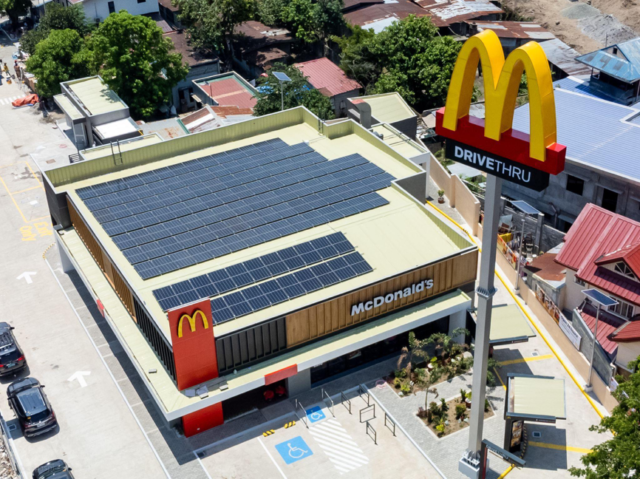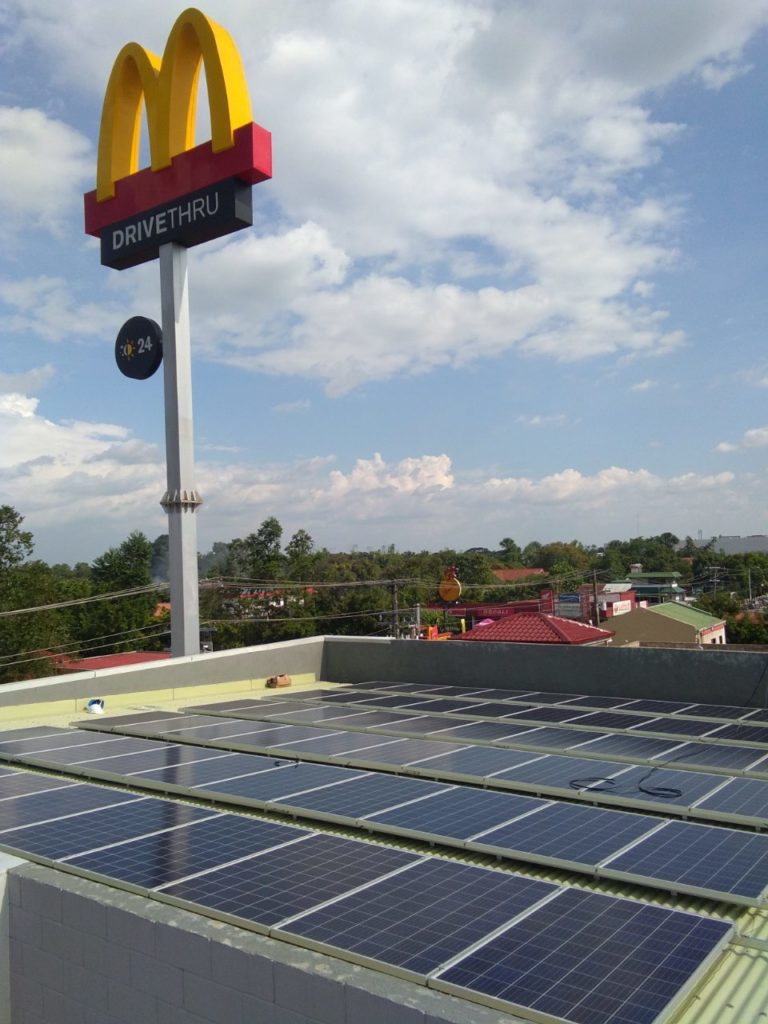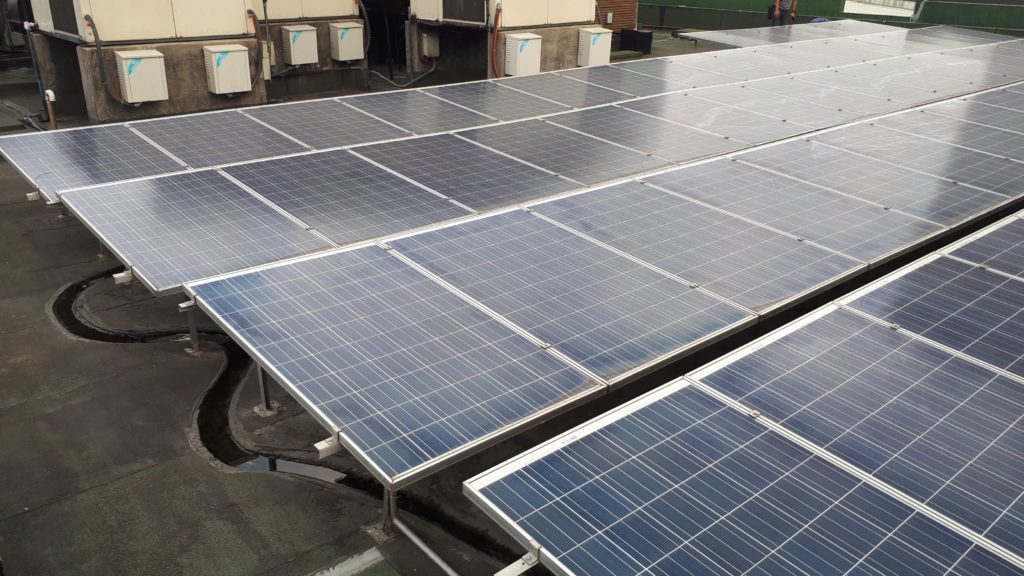
MANILA, PHILIPPINES — Quick service restaurant giant McDonald’s Philippines, majority owned and operated by its Master Franchise Holder, Chairman & Founder Dr. George T. Yang is poised to strengthen its Green & Good intiative, the company’s commitment to the environment, by scaling innovative and sustainable restaurant solutions in more of its new stores in the country.
Since 2020, McDonald’s has opened two Green & Good flagship stores in Manila and Mandaluyong to test and learn green solutions for sustainable restaurant practices. Previously, the company also conducted a pilot test in its Quezon Avenue, Quezon City and Malasiqui, Pangasinan stores to explore rooftop solar power systems.
Today, McDonald’s is now set to roll out its first batch of new stores in Arayat, Pampanga and Ligao, Albay to be solar-powered. These stores are equipped with grid-tied/on-grid solar photovoltaic (PV) systems connected to the local utility grid and is a cost-effective option to supplement energy requirements. With potentially more than 70,000 KWH in estimated annual power generation, equivalent to approximately less 17,000 kg of CO2 emissions. With the solar rooftop being its significant source of electricity, McDonald’s will be able to power these stores with clean and renewable energy, enhancing its other sustainable solutions for its restaurants.
“McDonald’s Philippines is embarking on our journey towards becoming a better McDonald’s for the environment. We recognize the role we play and the impact we can make by committing to learn and scale initiatives that reduce waste and emissions”, shared McDonald’s Philippines President & CEO Kenneth S. Yang. “Our goal is for our stores to become sustainable developments that feature sustainable restaurant solutions that enable waste reduction, energy conservation, upcycling, and inclusive dining solutions.”
Similar to its existing branches in U.N. Del Pilar Manila and Shaw Wack-Wack Mandaluyong, the new stores will also feature solar lamp posts, photo and motion sensors, and high-performance glass film as part of its utility efficiency solutions, as well as eco-friendly air conditioning for less energy consumption. Green building solutions such as light gauge steel frames, ecopavers/panels and concrete fiber are incorporated as well. Meanwhile, sustainable packaging, proper waste disposal, and active mobility continue to be part of Green & Good stores’ upcycling and inclusive dining experiences.
This year, the company projects to further expand its commitment to the environment by opening more new Green & Good flagship stores in the country and convert more of its existing stores to use solar power energy.

 McDonald’s pilot test for solar power rooftop in its Quezon Avenue, Quezon City store.
McDonald’s pilot test for solar power rooftop in its Quezon Avenue, Quezon City store.



